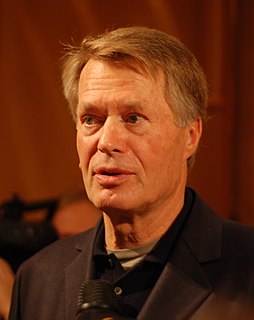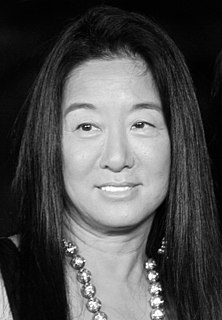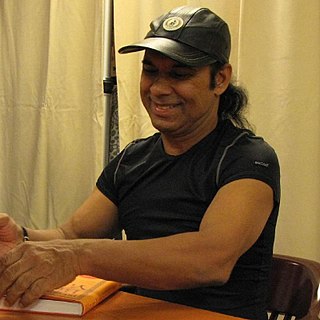A Quote by J.M.G. Le Clézio
She carried the burn of the sun on her body. It was for all of those wasted, dull years.
Related Quotes
Perhaps I will die too, she told herself, and the thought did not seem so terrible to her. If she flung herself from the window, she could put an end to her suffering, and in the years to come the singers would write songs of her grief. Her body would lie on the stones below, broken and innocent, shaming all those who had betrayed her. Sansa went so far as to cross the bedchamber and throw open the shutters ... but then her courage left her, and she ran back to her bed, sobbing.
I took one glance at her in that hospital bed under the dull light and recognised the look on her face, which I'd seen on donors often enough before. It was like she was willing her eyes to see right inside herself, so she could patrol and marshal all the better the separate areas of pain in her body.
Twelve years ago my mother gets her cataracts removed. So twelve years ago the doctor gives her these enormous sunglasses to wear to protect her eyes from the sun for 4-6 weeks after the operation...twelve years ago. She still wears them. She thinks they're attractive. She looks like Bea Arthur as a welder.
I think that one morning, the Papess woke in her tower, and her blankets were so warm, and the sun was so golden, she could not bear it. I think she woke, and dressed, and washed her face in cold water, and rubbed her shaven head. I think she walked among her sisters, and for the first time saw that they were so beautiful, and she loved them. I think she woke up one morning of all her mornings, and found that her heart was as white as a silkworm, and the sun was clear as glass on her brow, and she believed then that she could live, and hold peace in her hand like a pearl.
Her mind was present because she was always gone. Her hands were filled because they grasped the meaning of empty. Life was simple. Her husband returned and she served him with indifferent patience this time. When he asked what had happened to her heat for him, she gestured to the west. The sun was setting. The sky was a body of fire.
She expected the pain, when it came. But she gasped at its sharpness; it was not like any pain she had felt before. He kissed her and slowed and would have stopped. But she laughed, and said that this one time she would consent to hurt, and bleed, at his touch. He smiled into her neck and kissed her again and she moved with him through the pain. The pain became a warmth that grew. Grew, and stopped her breath. And took her breath and her pain and her mind away from her body, so that there was nothing but her body and his body and the light and fire they made together.
She sat leaning back in her chair, looking ahead, knowing that he was as aware of her as she was of him. She found pleasure in the special self-consciousness it gave her. When she crossed her legs, when she leaned on her arm against the window sill, when she brushed her hair off her forehead - every movement of her body was underscored by a feeling the unadmitted words for which were: Is he seeing it?
In her heart she is a mourner for those who have not survived. In her soul she is a warrior for those who are now as she was then. In her life she is both celebrant and proof of women's capacity and will to survive, to become, to act, to change self and society. And each year she is stronger and there are more of her.
She was incomprehensible, for, in her, soul and spirit were one - the beauty of her body was the essence of her soul. She was that unity sought for by philosophers through many centuries. In this outdoor waiting room of winds and stars she had been sitting for a hundred years, at peace in the contemplation of herself.
I was raised by my grandmother. She had a very difficult time, raised all her kids, my father and everybody. Listening to those stories and finding her so strong, poised. Anybody who came close to her was made to feel blessed. And at the same time, it didn't matter how strong a person was, in front of her, their head would go down. She carried through her life raising everybody. That is my model.





































